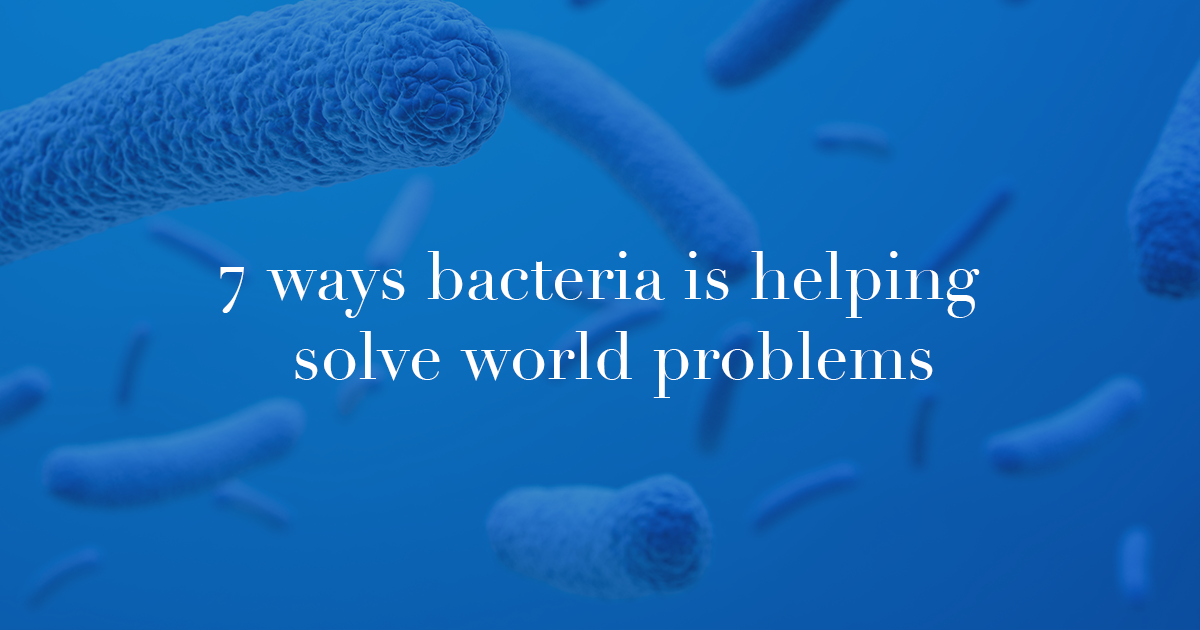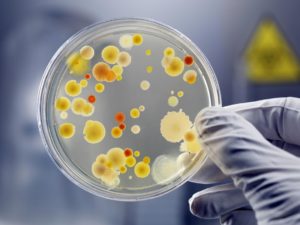

When you think about bacteria, pleasant things probably don’t come to mind. In fact, most of us likely prefer to keep bacteria at bay. (Movement readers appreciate how Norwex Microfiber actually removes up to 99% of bacteria from a surface with water alone when following proper care and use instructions.)
 But what if you could harness bacteria to help eradicate plastic waste? Well, that is one idea that several groups of middle school students focused on as part of a First Lego League Global Innovation competition, where they worked to create solutions for global challenges:
But what if you could harness bacteria to help eradicate plastic waste? Well, that is one idea that several groups of middle school students focused on as part of a First Lego League Global Innovation competition, where they worked to create solutions for global challenges:
1. A team in Canada created a plastic “composter” that uses bacteria to biodegrade polyethylene over 15 weeks. The process creates CO2 and biomass, which can be sold as fertilizer.
2. A group of students in California created the “Polystyrenator,” a digester that uses bacteria to eat Styrofoam® and turn it into energy and biodegradable plastic.
3. An all-girls team came up with a plan for a device that would use microorganisms to turn scraps of food and waste into fuel for methane-powered appliances such as stoves, furnaces and water heaters.
In addition to these unique ideas from middle schoolers, some of the brightest minds in bioresearch are also harnessing bacteria to solve tough challenges:
4. Scientists from Edinburgh University have genetically modified a strain of E. coli to glow green near certain explosives. The goal is to be able to drop bacteria onto suspected landmine sites, replacing the need for metal detectors and/or sniffer dogs.
5. Mascoma, a biofuels company, has created a yeast (technically a fungus) that can convert up to 97% of crop waste into ethanol—a significant improvement over previous yeasts, which could convert only about 66% of the tough plant material, including corn stalks, wheat straw and inedible sugar cane parts.
6. Bacteria are also being used to help prevent wildfires. An invasive plant called cheatgrass forms fine, dry straw that catches fire easily in the dry areas of Idaho and Oregon. Researchers from the US Geological Survey found that using Pseudomonas fluorescens suppresses growth of the plant’s roots, helping to clear the land of cheatgrass and thereby reduce risk of fire.
7. A team at the University of Portsmouth is working to discover and engineer bacterial enzymes that “eat” plastic like polyethylene terephthalate, or PET.
“If an alien visited Earth, they would take some note of humans, but probably spend most of their time trying to understand the dominant form of life on our planet—microorganisms like bacteria and viruses.”
–Nathan Wolfe, American virologist
Resources:
Bacteria is beneficial in our “gut” or digestive health. It is also helpful with septic systems for those of us living in rural areas. It is also introduced by Conservation into waterways that are overloaded with toxic algae.
Honestly, we all have good bacteria on our skin, which is why I stay clear of anti-bacterial soaps or “cleansers”. These types of things have made bacteria more resistent to medical treatments, too, which then causes “super bugs”. In many cases, bacteria are good. Problems arise with too much of a bad bug… Composting relies on organisms to break down our food and yard waste into fertilizer.
What happens to all these engineered bacteria after they have been released into the environment? It’s not like you can just round them up and take them away once they’ve done their job.